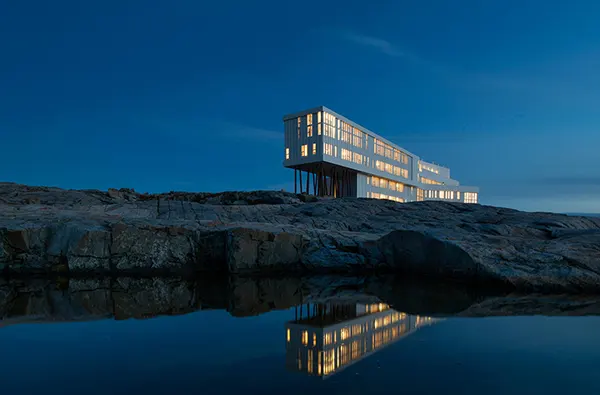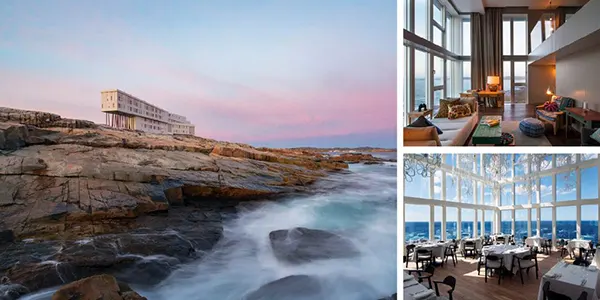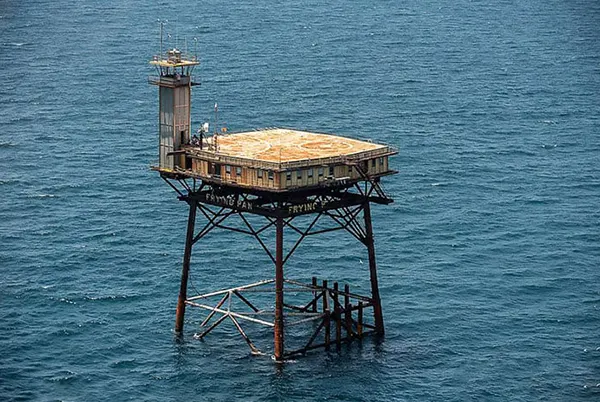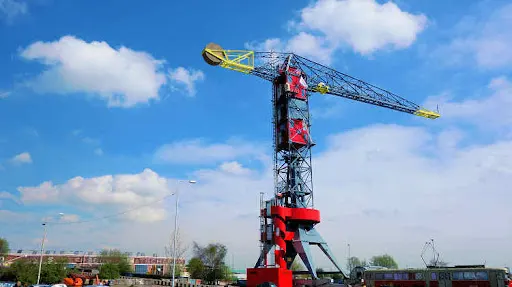
Fogo Island Inn in Canada: Architecture at the Edge of the World
Nestled on the rocky shores of Newfoundland’s remote Fogo Island, Fogo Island Inn is more than just a retreat—it is a bold statement about how architecture can preserve culture, empower communities, and coexist with nature. Built in one of the most isolated parts of Canada, the inn challenges conventional notions of luxury, sustainability, and design. Through its thoughtful construction and deep-rooted connection to local traditions, it has become a global model for responsible architecture and ethical tourism.
The Architectural Philosophy Behind Fogo Island Inn
Fogo Island Inn is not just a remote retreat perched on the coast of Newfoundland. It is a modern architectural statement rooted deeply in local culture, tradition, and ecology. Designed by Canadian architect Todd Saunders in collaboration with social entrepreneur Zita Cobb and the Shorefast Foundation, the inn demonstrates how architecture can embody both innovation and community heritage.
The building is elevated on stilts—a nod to traditional fishing stages once common along the coast—minimising environmental impact while anchoring the structure within the island’s architectural vernacular. Clad in white-painted wood, its minimalist rectangular form contrasts yet complements the rugged Atlantic landscape. Every aspect of the design reflects the island’s commitment to sustainability and self-reliance.
Each of the 29 guest suites faces the ocean and features interiors curated with locally crafted furnishings, hand-sewn quilts, and bespoke wooden fixtures. These elements aren’t decorative—they represent a continuity of craft, offering visitors a genuine connection to the place.
Respect for Nature and Cultural Legacy
Fogo Island Inn was conceived as a cultural and ecological preservation project, not a typical hospitality business. Its architecture upholds the identity of the island’s people while introducing a fresh narrative about design in isolated communities. The use of local materials—such as spruce, fir, and wool—reinforces the authenticity of the guest experience.
Its flat roof, simple geometry, and naturally ventilated spaces reflect a thoughtful response to the North Atlantic climate. Windows are placed to frame the raw beauty of the surroundings, from drifting icebergs to rolling fog. There is a silent dialogue between the interior space and the environment outside, uninterrupted and respectful.
Rather than disrupting the island’s ecosystem, the construction and continued operation of the inn aim to nurture it. The architecture stands not as an imposition, but as an extension of Fogo Island’s story—a contemporary chapter rooted in continuity.
Infrastructure Built on Sustainable Development
The inn operates under a community-centred business model where 100% of operating surpluses are reinvested into local initiatives. This transforms guests into contributors to the island’s socio-economic development. From educational programmes to craft workshops and artist residencies, the impact reaches well beyond tourism.
The restaurant exemplifies local sourcing: ingredients are foraged, fished, or grown by islanders. Each dish tells a seasonal story, supporting traditional knowledge and ecological awareness. There’s no room service or spa gimmicks—guests are instead encouraged to engage with the place and its people.
Recreation at the inn includes nature walks, boat trips, and community encounters—fostering genuine cultural exchange. The absence of typical tourist distractions is intentional, creating a setting for quiet immersion and reflective travel.
Positive Impact on the Local Economy
Since its opening, Fogo Island Inn has become an economic catalyst, generating jobs and supporting micro-enterprises across the island. Local carpenters, textile makers, boatbuilders, and food producers are integrated into the supply chain, ensuring long-term resilience.
Importantly, the scale of tourism is carefully managed. Guest numbers are limited to preserve the fragile ecosystem and maintain the integrity of local life. This slow-tourism approach allows the community to thrive without compromising its cultural fabric.
The inn’s broader influence includes art exhibitions, workshops, and educational partnerships that position the island within global cultural and architectural conversations. This gives local youth new opportunities without erasing their heritage.

Fogo Island Inn as a Model of Architectural Activism
Fogo Island Inn exemplifies how design can be a tool for social innovation. It’s a physical manifestation of resistance against rural decline and environmental neglect. Here, architecture does not merely provide shelter—it forges connections between people, place, and purpose.
Todd Saunders’ vision extends far beyond aesthetics. Every design decision supports a sustainable ecosystem: passive solar orientation, minimal material transport, off-grid technologies, and cultural continuity. The inn acts as a prototype for ethical architecture in remote settings.
At the heart of the project lies “deep localism”—a philosophy that values working with what’s available, honouring local wisdom, and resisting the homogenisation of global development. It shows that remoteness can be a strength, not a limitation.
Influence on Contemporary Architecture
Fogo Island Inn has become a case study in architecture schools, journals, and exhibitions worldwide. It demonstrates that thoughtful design in marginal places can achieve both aesthetic excellence and societal relevance. The building’s narrative is as important as its structure.
The project challenges the profession to rethink the role of the architect—not just as a designer of spaces, but as a facilitator of community engagement and ecological stewardship. It also speaks to a broader public seeking meaningful and responsible travel experiences.
In an era dominated by rapid urbanisation, Fogo Island Inn invites a return to place-based thinking. It redefines what it means to build “at the edge”—not as a frontier of risk, but as a frontier of possibility.




